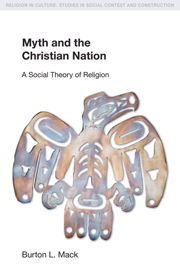Book contents
- Frontmatter
- Contents
- Dedication
- Preface
- Introduction
- Part I The Religions of Other Peoples
- Chapter 1 Looking for Religion in the New World
- Chapter 2 Noticing Social Interests in Myths and Rituals
- Chapter 3 Watching Myths in the Making
- Chapter 4 Thinking with Myths about Culture
- Part II The Religion of Christianity
- Conclusion
- Bibliography
- Index
Chapter 2 - Noticing Social Interests in Myths and Rituals
from Part I - The Religions of Other Peoples
- Frontmatter
- Contents
- Dedication
- Preface
- Introduction
- Part I The Religions of Other Peoples
- Chapter 1 Looking for Religion in the New World
- Chapter 2 Noticing Social Interests in Myths and Rituals
- Chapter 3 Watching Myths in the Making
- Chapter 4 Thinking with Myths about Culture
- Part II The Religion of Christianity
- Conclusion
- Bibliography
- Index
Summary
Tracing the history of the study of religion has resulted in two findings of importance for our theory. One is that a religion seems to be linked to the structures and life of its society, perhaps as a system of signs and practices intertwined with other patterns of activity that affect or describe the way a people lives together. A second is that myths and rituals have come into view as the two primary human preoccupations that we have thought of as religious. This provides us with data for further investigation, and with a focus upon the significance of both myths and rituals as social constructions and practices. We now need to find some links between myths and rituals and social formations. Only then will it be possible to work out a social theory of religion and explore the questions of why and how religions matter.
Myths
The reader will know that the popular definition and use of the term myth suggests stories or constructions upon social practices and ideas that are not true. The reader will also know that, when anyone uses this definition to describe a story or common convention, a statement is made about those who believe the myth, namely, that they are deceived. The person making the statement is accordingly not deceived, knowing that the myth is untrue.
- Type
- Chapter
- Information
- Myth and the Christian NationA Social Theory of Religion, pp. 48 - 81Publisher: Acumen PublishingPrint publication year: 2008



